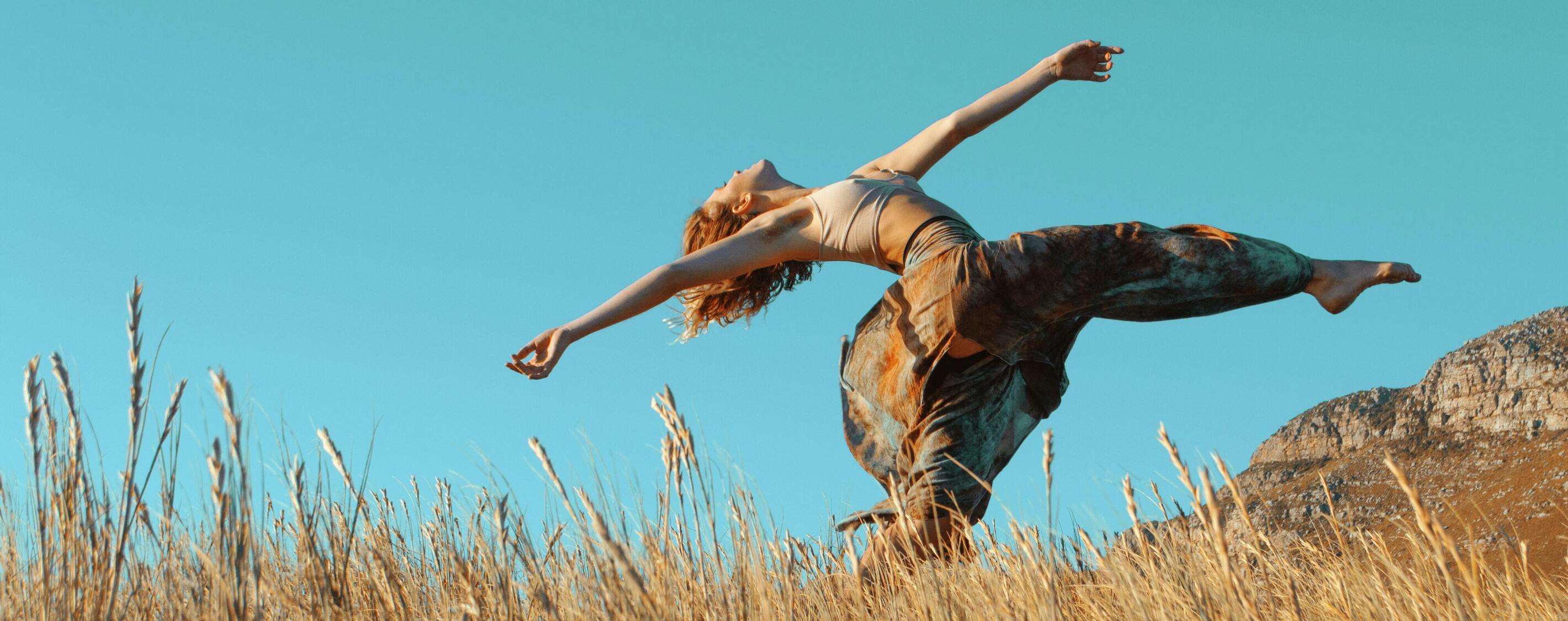Thanks to the fast-paced world, the days seem to fly by. Did you feel like the new year arrived, you blinked, and then it was nearly summer?
Me, too.
The arrival of summer means you might have an opportunity to slow down because more daylight gives you more hours in the day. While you may feel yourself using that extra time to be more productive, see if you can resist the urge to fill those hours with things on your to-do list.
Instead of continuing with your busy schedule, take the time to cherish the joys of summertime like trips to the beach, thick slices of ripe watermelon, warm evenings, or a few precious days off work.
Why not crack open a good book to enhance your summer even more? Do you want motivational books? Self-improvement books? Personal development books? Personal growth books? This list is for you!
The Daily Stoic offers you something profound to ponder every day of the year. You can start your day by reading an insightful quote by a Stoic philosopher like Roman Emperor Marcus Aurelius, the playwright Seneca, slave-turned-philosopher Epictetus, and others.
After each quote, Holiday and Hanselman offer real-world applications of the wisdom shared by the ancient philosophers.
For over a year, I’ve started most of my days by reading this book. I can’t say enough about it.
The author, Chodron, points out, “Most of us do not take these situations as teachings. We automatically hate them. We run like crazy. We use all kinds of ways to escape . . .”
When Things Fall Apart teaches you how to lean into the pain instead of trying to run away from it. Chodron encourages you to consider the suffering to be a lesson, and she guides you through the process.
Halifax encourages you to fully experience these five states by standing at the edge of them. Through her guidance, you can find freedom from suffering and also discover your true self.
The book offers a simple framework to incorporate positivity into your life. Each chapter of the book has a theme—such as aware, human, kind, and resilient—and each chapter incorporates four Mondays’ worth of experiences or ways to engage with its particular theme. You can choose whether you want to engage at a high, medium, or low level.
If you’re not a fan of Mondays, this book just might turn that Monday frown upside down.
Now arrange each of those spokes from end-to-end so that you have just one long spoke sticking out of the circle.
That’s the subtle art of essentialism in a nutshell. If you could put your energy into less, you would accomplish more. The book encourages you to do less and do it better. It offers guidance on how to be more selective and make better choices about where to spend your time and energy.
Think about it. What might happen if you spent your time on what is truly essential?
I’m such a fan of these principles, that I asked my daughter to paint the four agreements on canvas. Now they hang in our living room.
The agreements are:
For example, chapter four is entitled, “Recovering a Sense of Integrity.” One of the tasks you can choose is: “Remember yourself at eight. What did you like to do? What were your favorite things? Now, write a letter from you at eight to you at your current age. What would you tell yourself?”
“Morning pages” are a main pillar of The Artist’s Way. You’re invited to wake up 30 minutes early to write two or three pages of thoughts in longhand. There’s no “right” way to write these pages—just start by putting down on paper whatever comes up for you. Let your stream of consciousness take over, and allow this daily brain dump to clear out whatever might keep you stuck.
“No matter what your age or your life path, whether making art is your career or your hobby or your dream, it is not too late or too egotistical or too selfish or too silly to work on your creativity,” says Cameron.
Much of the book is based on the eight-week course Jinpa developed at Stanford University, Compassion Cultivation Training. It includes science on compassion and also techniques that help you nurture your inner seed of compassion. He also includes stories from his personal life as a Tibetan refugee and as the translator for the Dalai Lama.
Jinpa asserts that compassion is a trainable skill that we all already possess, and the book guides you along a path that brings more of it into your life.
Neither of them is a stranger to hardships, yet they are arguably the most joyful men on the planet. They must be doing something right.
Despite their different spiritual backgrounds, the Dalai Lama and Archbishop Tutu see eye-to-eye on the main causes of joy. They offer “eight pillars of joy,” which include perspective, humor, gratitude, compassion, and more. These pillars help you find peace and courage in the midst of life’s highs and lows.
While you read this book, you may feel as if you’re spending the week with these two beautiful humans. This inspiring book shares detailed excerpts of the conversations between the two. They poke fun at each other, share stories of devastation and inspiration, provide science-backed wisdom, and offer tools that can help you bring more joy into your life.
In this book, Ostaseski reminds you that by keeping death front-of-mind, you are able to live life more fully. He recognized five main lessons he has learned over his career, and he calls them the “five invitations:”
Find out what happens when you sit back, relax, and read this summer. Perhaps you’ll be able to move forward through the rest of the year with renewed energy and wisdom after spending time with these motivational books for personal growth. It's likely that a regular reading of one of these books will transform your life for the better.
Me, too.
The arrival of summer means you might have an opportunity to slow down because more daylight gives you more hours in the day. While you may feel yourself using that extra time to be more productive, see if you can resist the urge to fill those hours with things on your to-do list.
Instead of continuing with your busy schedule, take the time to cherish the joys of summertime like trips to the beach, thick slices of ripe watermelon, warm evenings, or a few precious days off work.
Why not crack open a good book to enhance your summer even more? Do you want motivational books? Self-improvement books? Personal development books? Personal growth books? This list is for you!
1. The Daily Stoic: 366 Meditations on Wisdom, Perseverance, and the Art of Living by Ryan Holiday and Stephen Hanselman
Stoicism is a school of philosophy that has stood the test of time. Beginning in ancient Greece in the third century BC, its teachings are still used worldwide. If you consider yourself a virtuous person who works on cultivating wisdom and tranquility, you would probably identify with the teachings of stoic philosophers.The Daily Stoic offers you something profound to ponder every day of the year. You can start your day by reading an insightful quote by a Stoic philosopher like Roman Emperor Marcus Aurelius, the playwright Seneca, slave-turned-philosopher Epictetus, and others.
After each quote, Holiday and Hanselman offer real-world applications of the wisdom shared by the ancient philosophers.
For over a year, I’ve started most of my days by reading this book. I can’t say enough about it.
2. When Things Fall Apart: Heart Advice for Difficult Times by Pema Chodron
We’ve all been through something that derails us. Whether it’s devastating heartache, the loss of a loved one, or an unexpected job loss, the pain can be difficult to bear.The author, Chodron, points out, “Most of us do not take these situations as teachings. We automatically hate them. We run like crazy. We use all kinds of ways to escape . . .”
When Things Fall Apart teaches you how to lean into the pain instead of trying to run away from it. Chodron encourages you to consider the suffering to be a lesson, and she guides you through the process.
3. Standing at the Edge: Finding Freedom Where Fear and Courage Meet by Joan Halifax
Through her decades of work with caregivers, activists, humanitarians, politicians, parents, and teachers, Joan Halifax, PhD, has gained experience and wisdom, particularly when it comes to suffering. In this book, the Zen priest and Buddhist teacher names five psychological territories that epitomize strength of character—altruism, empathy, integrity, respect, and engagement. Halifax refers to these as “edge states,” because they can also create suffering personally and socially.Halifax encourages you to fully experience these five states by standing at the edge of them. Through her guidance, you can find freedom from suffering and also discover your true self.
4. Every Monday Matters by Matt Emerzian
When Matt Emerzian had a panic attack before work one Monday morning, he realized the “successful” life he had created was not offering him genuine joy. Emerzian learned the hard way that money and material things couldn’t bring him happiness, and his personal experience inspired him to create a nonprofit organization and book, Every Monday Matters, to help people achieve true fulfillment.The book offers a simple framework to incorporate positivity into your life. Each chapter of the book has a theme—such as aware, human, kind, and resilient—and each chapter incorporates four Mondays’ worth of experiences or ways to engage with its particular theme. You can choose whether you want to engage at a high, medium, or low level.
If you’re not a fan of Mondays, this book just might turn that Monday frown upside down.
5. Essentialism: The Disciplined Pursuit of Less by Greg Mckeown
Take a moment to think about how many tasks and projects occupy your time. Now imagine each of those as a spoke sticking out of a circle. You might have 20 little tiny spokes sticking out of that circle, making it look like a sun.Now arrange each of those spokes from end-to-end so that you have just one long spoke sticking out of the circle.
That’s the subtle art of essentialism in a nutshell. If you could put your energy into less, you would accomplish more. The book encourages you to do less and do it better. It offers guidance on how to be more selective and make better choices about where to spend your time and energy.
Think about it. What might happen if you spent your time on what is truly essential?
6. The Four Agreements: A Practical Guide to Personal Freedom by Don Miguel Ruiz
Speaking of essentialism, The Four Agreements boils down ancient teachings into four main calls to action. A quick-and-easy read with profound wisdom, it is a handbook for how to move through life without needless suffering.I’m such a fan of these principles, that I asked my daughter to paint the four agreements on canvas. Now they hang in our living room.
The agreements are:
- Be impeccable with your word.
- Don’t take anything personally.
- Don’t make assumptions.
- Always do your best.
7. The Artist’s Way: A Spiritual Path to Higher Creativity by Julia Cameron
Whether you consider yourself to be creative or not, this book can help you open your mind and learn to prioritize “me” time. Based on a course the author Julia Cameron began teaching in Manhattan in 1978, the book guides you on a 12-week journey to help you unlock your creative potential. In each chapter, you’ll find essays, exercises, tasks, and a weekly check-in.For example, chapter four is entitled, “Recovering a Sense of Integrity.” One of the tasks you can choose is: “Remember yourself at eight. What did you like to do? What were your favorite things? Now, write a letter from you at eight to you at your current age. What would you tell yourself?”
“Morning pages” are a main pillar of The Artist’s Way. You’re invited to wake up 30 minutes early to write two or three pages of thoughts in longhand. There’s no “right” way to write these pages—just start by putting down on paper whatever comes up for you. Let your stream of consciousness take over, and allow this daily brain dump to clear out whatever might keep you stuck.
“No matter what your age or your life path, whether making art is your career or your hobby or your dream, it is not too late or too egotistical or too selfish or too silly to work on your creativity,” says Cameron.
8. A Fearless Heart: How the Courage to Be Compassionate Can Transform Our Lives by Thupten Jinpa
A Fearless Heart offers guidance on living a life with more compassion for yourself and others and was written by the Dalai Lama’s principle English translator and well-respected Buddhist thought leader, Thupten Jinpa.Much of the book is based on the eight-week course Jinpa developed at Stanford University, Compassion Cultivation Training. It includes science on compassion and also techniques that help you nurture your inner seed of compassion. He also includes stories from his personal life as a Tibetan refugee and as the translator for the Dalai Lama.
Jinpa asserts that compassion is a trainable skill that we all already possess, and the book guides you along a path that brings more of it into your life.
9. The Book of Joy: Lasting Happiness in a Changing World by Douglas Carlton Abrams, Dalai Lama, and Desmond Tutu
Archbishop Desmond Tutu visited the Dalai Lama for his 80th birthday, and the two spent a week together answering the question, “How do we find joy in the face of life’s inevitable suffering?”Neither of them is a stranger to hardships, yet they are arguably the most joyful men on the planet. They must be doing something right.
Despite their different spiritual backgrounds, the Dalai Lama and Archbishop Tutu see eye-to-eye on the main causes of joy. They offer “eight pillars of joy,” which include perspective, humor, gratitude, compassion, and more. These pillars help you find peace and courage in the midst of life’s highs and lows.
While you read this book, you may feel as if you’re spending the week with these two beautiful humans. This inspiring book shares detailed excerpts of the conversations between the two. They poke fun at each other, share stories of devastation and inspiration, provide science-backed wisdom, and offer tools that can help you bring more joy into your life.
10. The Five Invitations: Discovering What Death Can Teach Us About Living Fully by Frank Ostaseski
As the co-founder of the Zen Hospice Project and a highly regarded teacher of compassionate caregiving, Frank Ostaseski knows a thing or two about life and death. He has sat on the bedside of more than 1,000 people, whom he calls his teachers, and helped them transition from life to death.In this book, Ostaseski reminds you that by keeping death front-of-mind, you are able to live life more fully. He recognized five main lessons he has learned over his career, and he calls them the “five invitations:”
- Don’t wait.
- Welcome everything, push away nothing.
- Bring your whole self to the experience.
- Find a place of rest in the middle of things.
- Cultivate don’t know mind.
Find out what happens when you sit back, relax, and read this summer. Perhaps you’ll be able to move forward through the rest of the year with renewed energy and wisdom after spending time with these motivational books for personal growth. It's likely that a regular reading of one of these books will transform your life for the better.




